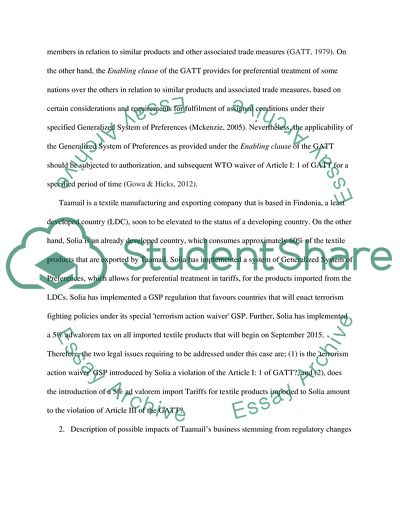Cite this document
(“The Fate of Taamail's Export Assignment Example | Topics and Well Written Essays - 3000 words”, n.d.)
The Fate of Taamail's Export Assignment Example | Topics and Well Written Essays - 3000 words. Retrieved from https://studentshare.org/law/1687061-case-study-according-to-wto-gatt-agreement-general-agreement-on-tariffs-and-trade-the-fate-of-taamails-export-under-solias-new-generalized-system-of-prefrences
The Fate of Taamail's Export Assignment Example | Topics and Well Written Essays - 3000 words. Retrieved from https://studentshare.org/law/1687061-case-study-according-to-wto-gatt-agreement-general-agreement-on-tariffs-and-trade-the-fate-of-taamails-export-under-solias-new-generalized-system-of-prefrences
(The Fate of Taamail'S Export Assignment Example | Topics and Well Written Essays - 3000 Words)
The Fate of Taamail'S Export Assignment Example | Topics and Well Written Essays - 3000 Words. https://studentshare.org/law/1687061-case-study-according-to-wto-gatt-agreement-general-agreement-on-tariffs-and-trade-the-fate-of-taamails-export-under-solias-new-generalized-system-of-prefrences.
The Fate of Taamail'S Export Assignment Example | Topics and Well Written Essays - 3000 Words. https://studentshare.org/law/1687061-case-study-according-to-wto-gatt-agreement-general-agreement-on-tariffs-and-trade-the-fate-of-taamails-export-under-solias-new-generalized-system-of-prefrences.
“The Fate of Taamail'S Export Assignment Example | Topics and Well Written Essays - 3000 Words”, n.d. https://studentshare.org/law/1687061-case-study-according-to-wto-gatt-agreement-general-agreement-on-tariffs-and-trade-the-fate-of-taamails-export-under-solias-new-generalized-system-of-prefrences.


